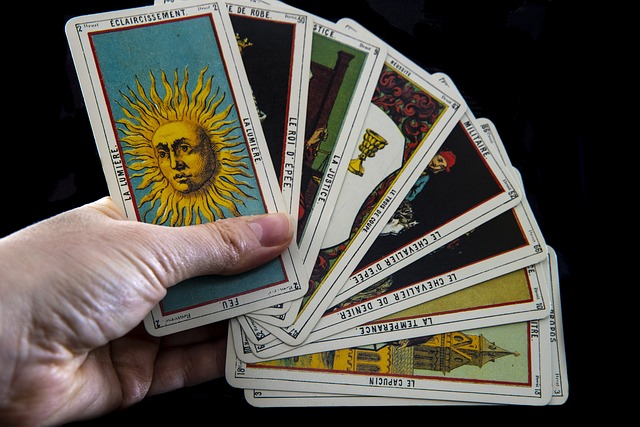
The Fool is one the 78 cards in the Tarot deck. It is one of the 22 Major Arcana, and sometimes it is numbered 0 or XXII. This card represents curiosity, risk-taking, and new ideas. It also represents new love. In tarot readings, the Fool can help you make important decisions about your life.
Experimenting with new ideas
The Fool can help you to take risks and explore new ideas. He wants you to trust yourself and trust the Universe. You can make your ideas come true by trusting yourself and your intuition.

Exploring new places
The Fool encourages us not to be afraid, but he also teaches us to trust our own judgment. While leaps of faith may seem natural, they can also be a little scary, especially when we don't know what's on the other side.
Attracting new partners
The Fool tarot card has many interpretations. It's also known as the "playboy", and it represents someone who is looking for pleasure and affirmation. This kind of thinking can lead to a resentful partner. Fool cards might not be the best sign for you if, for example, you're not ready or willing to let go of your routine.
Physical health
The Fool Tarot card is a sign of the beginning of a new adventure that will bring you physical and emotional healing. If the Fool card is present in your reading, it will give you the chance to discover information that will assist you in healing yourself.

Romance
Your love life will be dominated by the Fool, which can lead to impulsive and impetuous relationships. You may be nervous about making big decisions, or you may struggle to keep your feet on the ground. In these cases, it's best to share your fears and worries with your partner and work out your reservations. This will allow you to avoid making mistakes that may prove costly later.
FAQ
What are educational hobbies, you ask?
An educational hobby is a activity that allows you to learn by doing it. This could include anything from learning to play an instrument to playing sports.
You should have fun with it. You don't have to do it all the time, but if you find yourself getting bored, then you need to think about what else you could be doing instead.
These activities can also be costly so make sure you don't spend too much.
What are some great hobbies for seniors?
Senior citizens should find activities they love to do. They should also try to stay active by participating in sports and other physical activities.
They may wish to join clubs, where they can find others who have similar interests. This way, they'll feel less lonely as they age.
Seniors need to keep up with current trends. They could be interested in fashion, art, music and literature.
What are some good hobbies ideas?
Doing something you enjoy is the best hobby. You will find it easier to stay motivated if you love what your doing. This will give you a reason for not feeling well, or tired.
There are many hobbies that we all enjoy: gardening, painting and crafts; photography; cooking; sports and games; reading music and film-making; collecting; cycling, walking, dancing and writing; playing instruments and other musical instruments.
You could also consider volunteering at a local charity shop, animal shelter, children's hospital, hospice, elderly care home, school, community center, church, etc.
If you're looking to do something more adventurous, Take up skydiving or rock climbing, parasailing, parasailing and paragliding.
There are many unique ways to spend time in the outdoors, whether you're looking for adventure or a more traditional way to do it. These include caving.
What are some good hobby ideas?
Hobby Ideas For People Who Love to Teach and Learn.
Hobbies allow you to enjoy what you love while also learning new things.
Although there are many hobbies to choose from, they all share some common characteristics. They're often fun and easy to do.
These include working with others to teach someone how to use an instrument or build an airplane.
Even though you might not think of yourself to be a teacher or a tutor, chances are there are things you can do that could help someone else.
If you are looking to become more creative in your daily life, you might consider starting a hobby that allows you to share your talents with others.
Is it possible to become rich from a hobby?
Not necessarily.
However, it is possible to become wealthy by starting a business around your hobby.
Let's assume you like cooking. You love healthy food so you open a new restaurant.
You only prepare organic meals from scratch. To cover the labor and ingredients costs, you will charge your customers a small service fee.
Over time, you grow your clientele and eventually hire employees who work alongside you.
Eventually, you expand your menu to include gluten-free options, vegan dishes, and desserts.
You've now created a profitable business that allows you to live the life you desire.
However, you don't have to quit your day job.
Instead, you could simply run your restaurant while still holding down your regular 9-5 position.
Statistics
- This 100% accurate personality-analyzing hobby quiz discovers your passion based on your characteristics. (quizexpo.com)
- Almost 80% of people claim to have no hobby. (hobbylark.com)
- Much of this decline reflects the fact that teens are less likely to work today than in the past; among employed teens, the amount of time spent working is not much different now than it was around 2005. (pewresearch.org)
- Studies show that just six minutes of reading can reduce stress levels by 60 percent. (oberlo.com)
- A new survey by Pew Research Center of teens ages 13 to 17 finds that 36% of girls feel tense or nervous about their day every day; 23% of boys say the same. (pewresearch.org)
External Links
How To
How to Start Gardening
Gardening is one the oldest forms. It requires patience, persistence, and determination. The first step in starting your own garden is choosing a location where you want to grow food. You can choose to have a large area or a small one in your backyard. Next, decide what type of plants you want to grow. Do you prefer vegetables, or flowers? Some people enjoy growing herbs while others love raising livestock such as rabbits. Before you decide what crops to plant, you should think about how much space is available. If you live somewhere that has cold winters, it might be a good idea to grow berries or fruits.
Once you have chosen what you will be planting, you must take some time to prepare your soil. It is vital that your soil is prepared properly to determine whether or not your plants will thrive. The soil should be rich in organic matter to provide nutrients for your plants' roots. Organic matter includes things like leaves, twigs, grass clippings, manure, and compost. You need nutrients to your soil after you have prepared it. You might need different amounts, depending on the species of plants that you want to grow. To determine these values, you can use a fertilizer calculator online. There are many fertilizers on the market, so ensure you understand what you are buying.
Now you need to wait for the seeds to germinate. The process can take between 2 and 3 months depending on how hot or cold it is in your region. Once the seeds have sprouted you will need to water them often. Problems can arise if you water your plants too frequently or too little. Make sure to give your plants water at regular times and not overwater. Overwatering could lead to root rot as well as fungal diseases. Keep in mind that plants are more thirsty during summer than winter. Remember that some plants require drying out after being watered. For tomatoes, it is important to keep them moist but dry. Soggy soil is not good for them. After plants finish flowering, they need to go dormant. The time when plants stop producing new life and store energy for the next season is called dormancy. Dormancy is when the plant stops sending signals back to its roots for food production. During this period, plants continue to store energy. If temperatures fall below freezing or the plants are not getting enough sunlight, they will die.
You may be limited in what plants you can grow if you live in an urban area. Concrete sidewalks, roads or parking lots can block sunlight from reaching urban areas. Concrete absorbs light and prevents soil below from getting sufficient sun exposure. Many plants are unable to survive in urban areas due to the lack of sunlight. There are still plants that thrive in urban environments. Many trees, perennials, shrubs, as well as shrubs can be adapted to urban living. Many annuals are also possible to grow indoors in containers. Container gardens allow you to bring fresh greenery into your home year-round regardless of the weather outside.
You are now ready for planting!